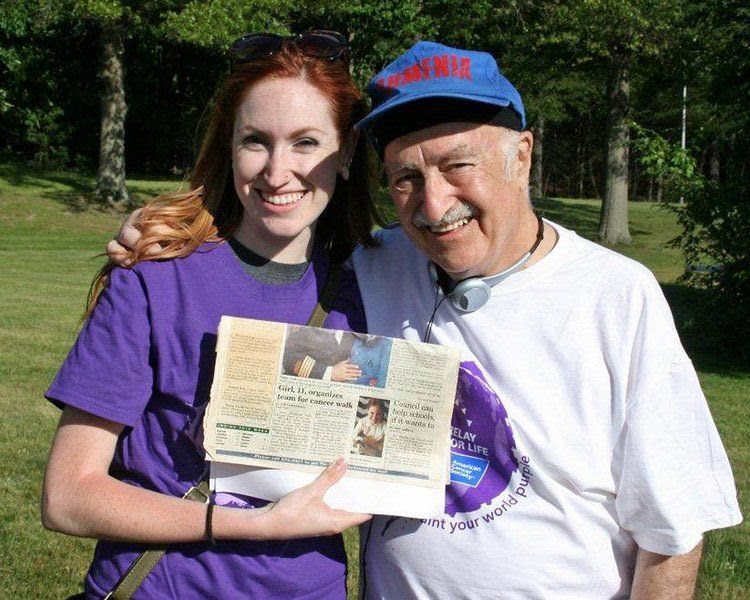Every once in a while, a story hits home that’s meant to be packaged and preserved forever.
Such a story belongs to Jenny Henderson, a vibrant crusader for the American Cancer Society, who’s been part of the Haverhill Relay for Life the past 16 years.

It took me that long to be reunited with the child I first interviewed back on April 6, 2001, when she was an 11-year-old with an uncertain future.
She had just been diagnosed with acute lymphoid leukemia. Instead of feeling desolate and lost, she chose a more positive route — organizing a team for the Relay and becoming a positive force for others.
I recall the day of her interview. I was sitting across from the child in her living room and firing questions away; I was old enough to be her grandfather. She handled them like a trooper. Jenny enjoyed taking ballet lessons and playing trombone in the school band. Her best friend was a cat named Dandy that sat on her lap—possibly for reassurance.
She talked about her friends and teachers at Bradford Elementary School where she was a fifth-grade high honors student. Her battle with cancer had begun 19 months prior and she was undaunted by her illness.
“She was showing signs of fatigue and doctors thought it might be a virus,” her mom recalled. “After exploratory surgery, her blood was found to be an absolute mess.”
The youngster was determined to give others like herself the inspiration to fight and persevere through the disease. My mother’s name was Jenny. She, too, was a resilient person, having survived a genocide. Perhaps that is why I gravitated to this young girl.
The year Jenny started her Relay for Life in 2001, she met her goal of $3,000 in pledge money and nearly doubled it the following year. She has been on an upward spiral ever since.
“I’m a cancer survivor.” she told me back then. “You don’t have to be an adult to get this sickness. Kids get it, too. I’m doing very well and want to help others who aren’t doing as well.”
Sixteen years later, our paths crossed again, and this time she was asking the questions about my own bout with gastrointestinal cancer. The article I had written about her being diagnosed as a child was in her hand and she wanted to bring it to my attention.
“It’s giving me the incentive to keep fighting,” she said. “I’ve kept it in my scrapbook all these years and refer to it every year, just before the Relay, for strength.”
Reporters write stories. They have no idea what happens to them upon publication, much less the impact they might bring. In Jenny’s case, she appeared stimulated by it.
Her team, Jenny’s Jesters, toured the Relay for Life track this year with jester hats and simple buffoonery, the idea being to add levity to the venue. Her 2-year-old son now walks on her behalf, along with a team of close relatives and friends. You would find Jenny at her tent handling the many raffles that were drawn that weekend. Hard to miss, too, with a big “HOPE” sign as a backdrop.
For the past six years, she’s worked for Coach at the Mall in Salem, New Hampshire, which she manages. At Haverhill High School, her life was consumed by dance. Two years after leaving Haverhill High, she graduated from Northern Essex Community College with a degree in Liberal Arts/Psychology.
Coming back to her alma mater for the cancer walk was a homecoming of sorts and she couldn’t say enough about the college for its hospitality and initiative.
“This school gave me an education,” she’s quick to say. “It’s also given me a life support. Becoming a mom has been the biggest accomplishment I could ever gain.”
Her mother and sister both serve on the committee. Lee Henderson and Kathie Balukas have been by Jenny’s side every step of the way, along with her two best friends, Mary Kate Walsh and Brad Burlamachi, two other cancer survivors.
“Jenny was always a queen and we were her court jesters,” said her mother. “For all of us, it’s become a celebration of life.”
Editor’s note: Columnist Tom Vartabedian has been diagnosed with cancer. This is the second in a series of columns about his treatments and other experiences related to the disease that will appear occasionally in the Haverhill Gazette, where Vartabedian worked for decades.


Be the first to comment